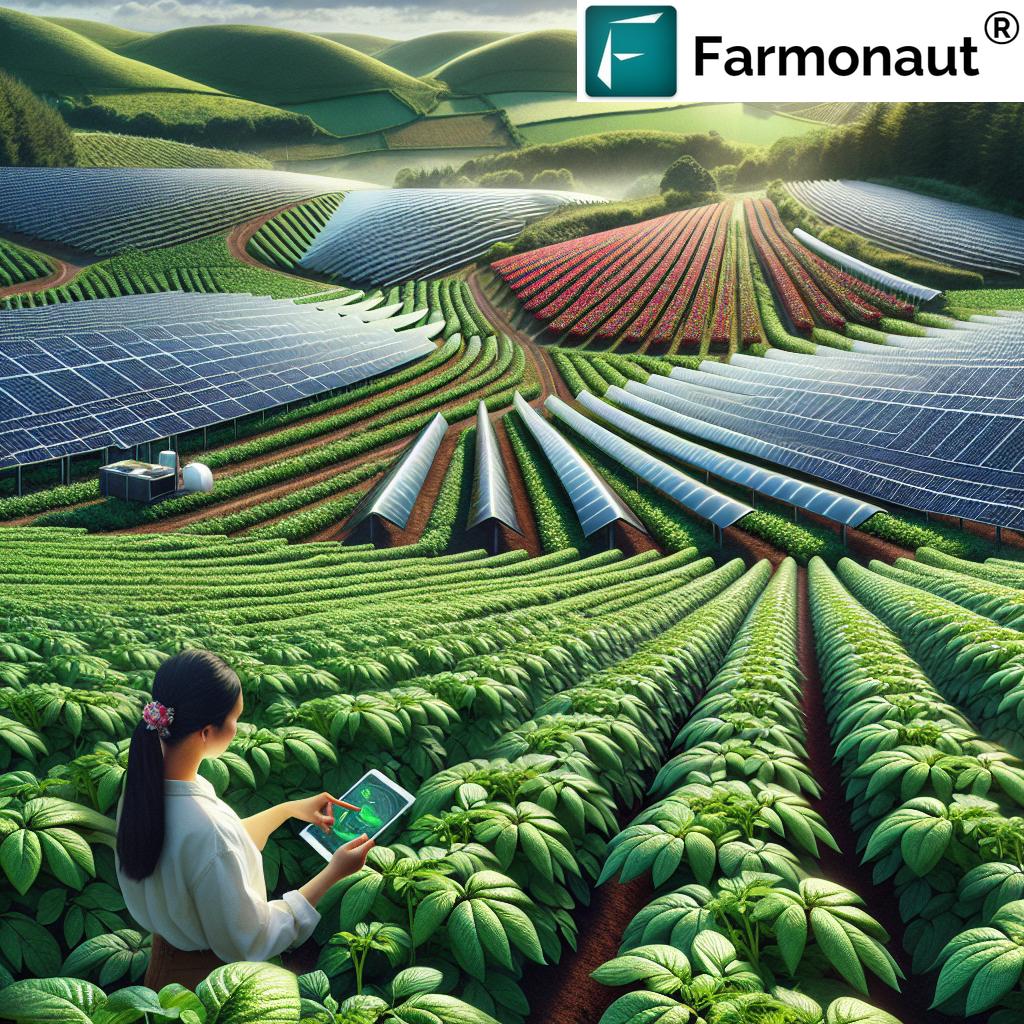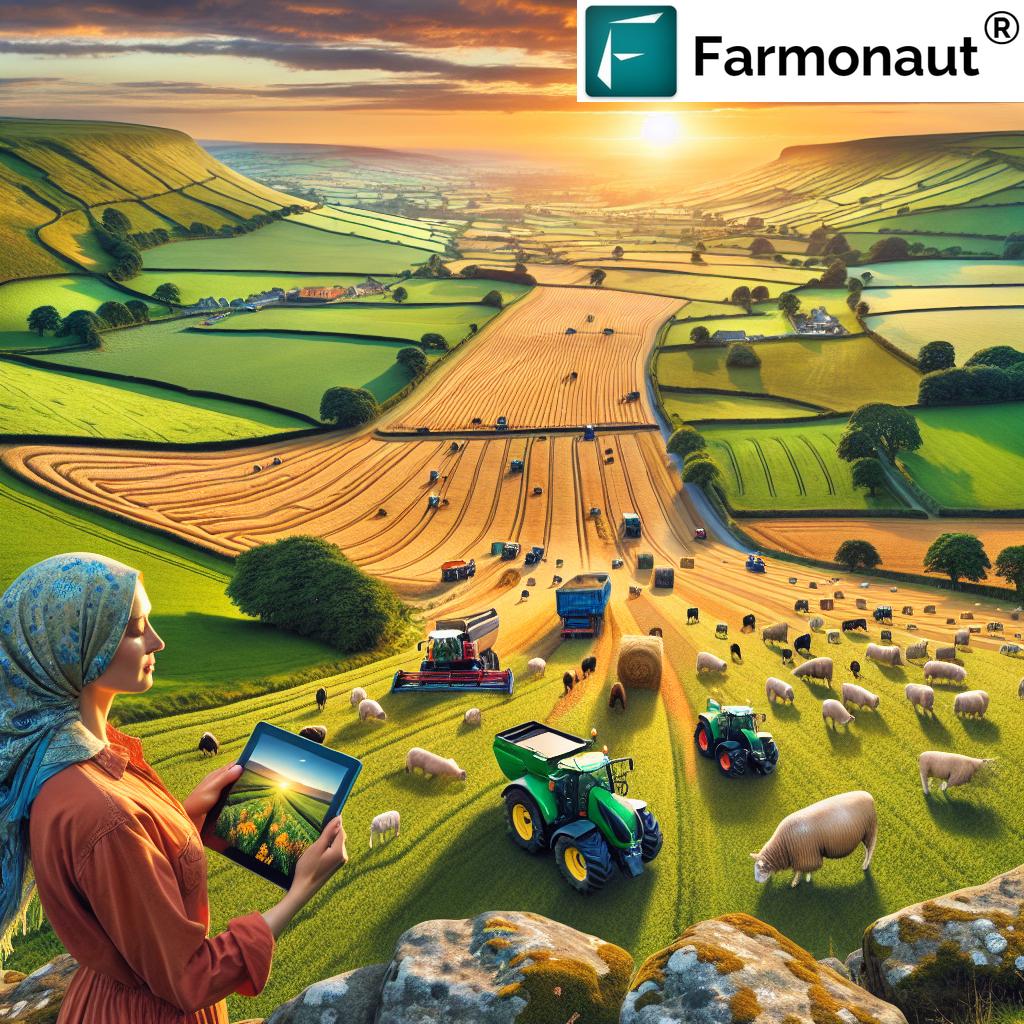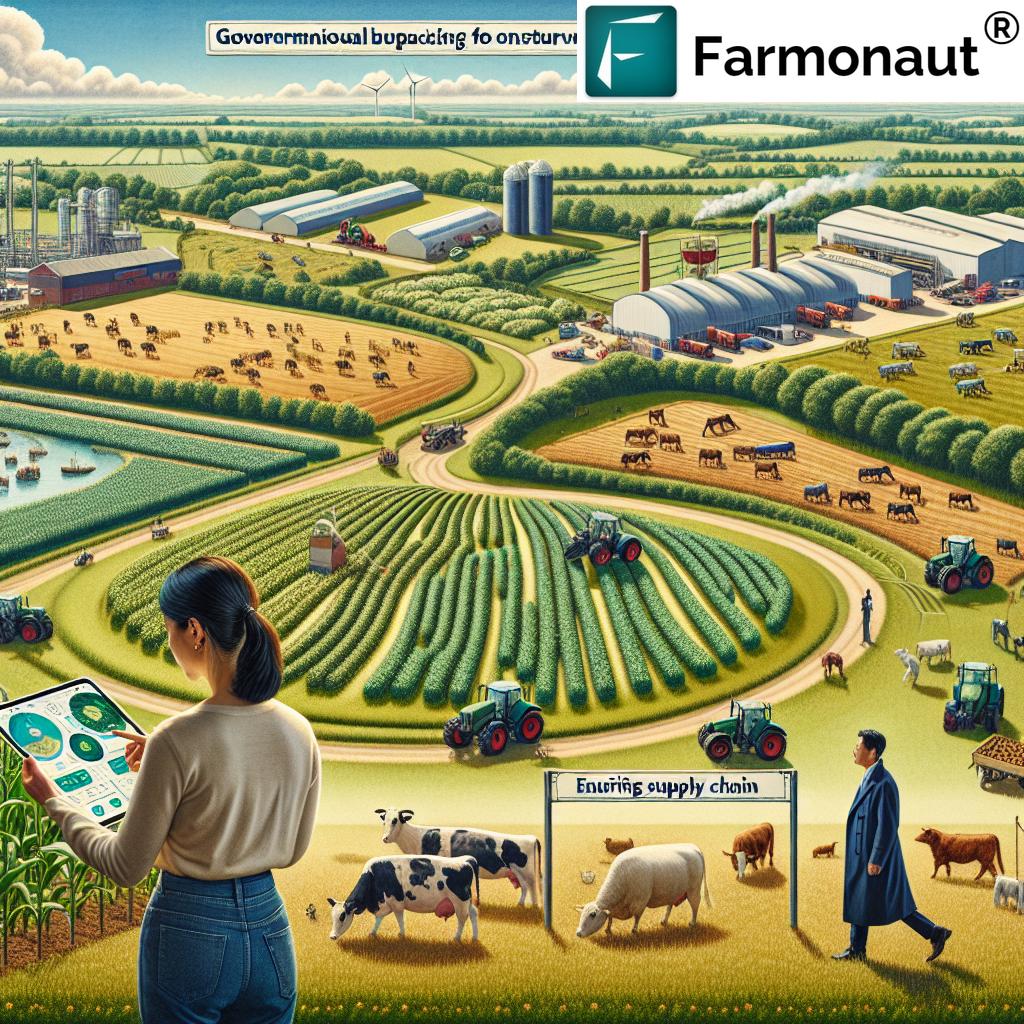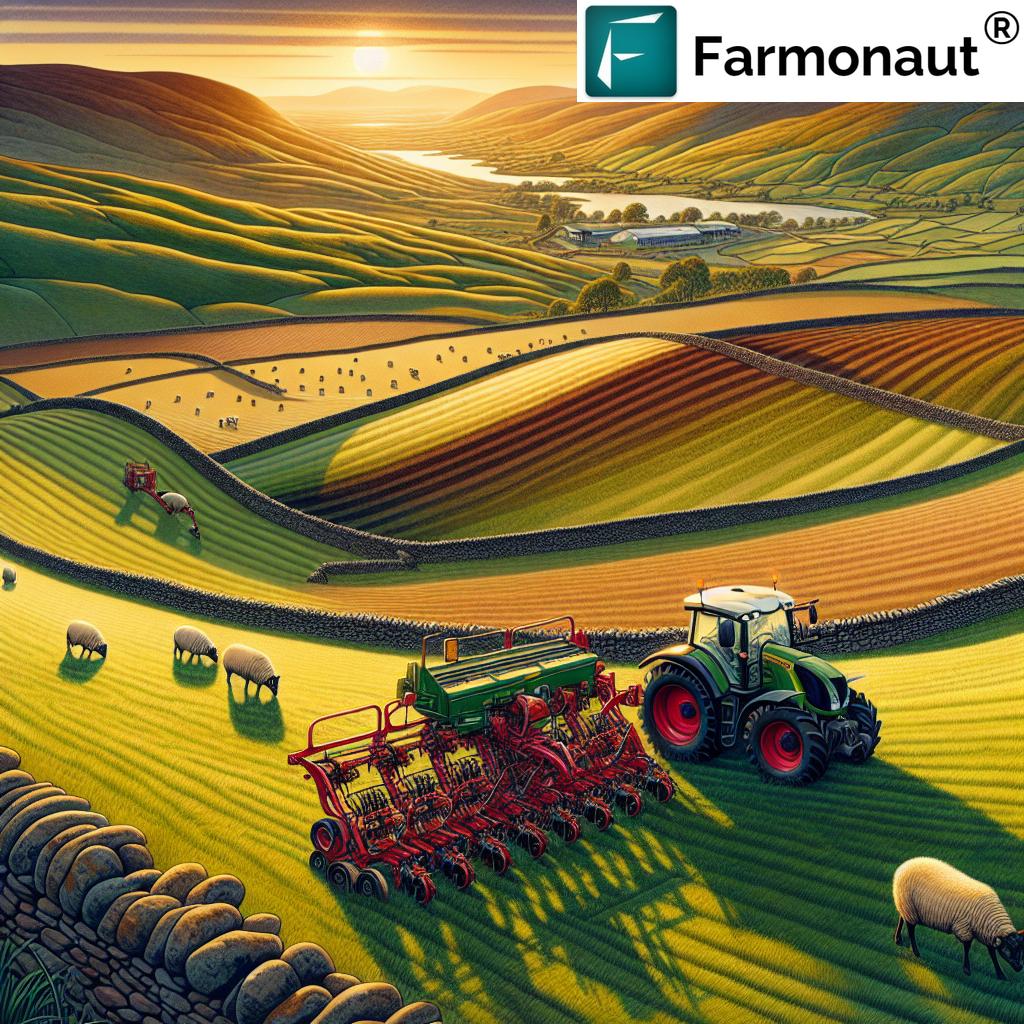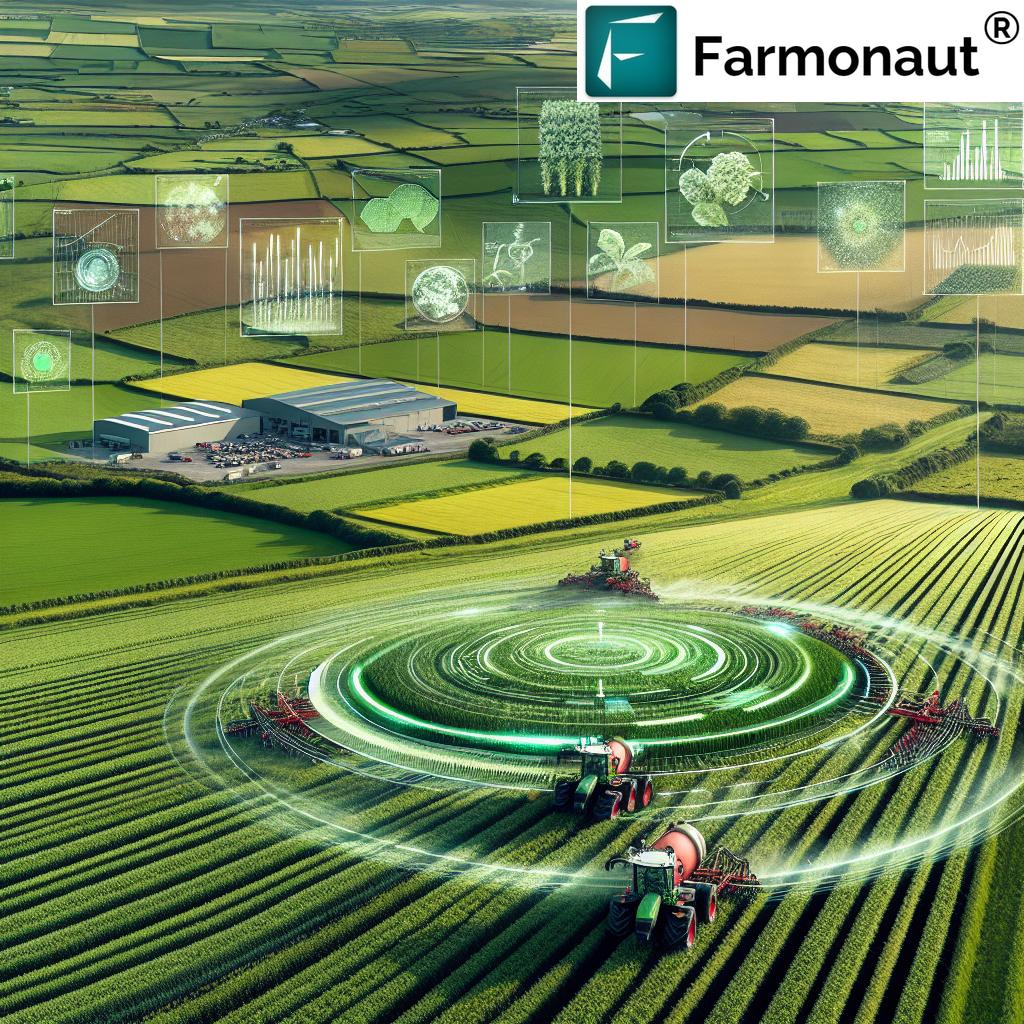Agriculture in the UK: 2025 Tech Trends & Sustainability
Agriculture in the UK: A 2025 Perspective
Agriculture remains a vital pillar in the United Kingdom’s economy, culture, and environment. As we look to 2025 and beyond, agriculture in the UK is navigating an era of significant transformation. Driven by the acceleration of technological innovation, sustainability imperatives, and shifting trade dynamics following Brexit, the UK agricultural sector continues to evolve—retaining its essential roles in food security, rural community support, and biodiversity conservation.
In 2025, UK agriculture is marked by an increasing focus on productivity and environmental stewardship. The sector is rapidly adopting smart agricultural technologies, refining sustainable practices, and adapting to climate challenges. Farmers and stakeholders are embracing opportunities presented by digital services, precision tools, and resilient management strategies—building a future where agriculture continues to contribute to the wellbeing of society and the planet.
“By 2025, over 60% of UK farms are expected to adopt precision agriculture technologies for smarter crop management.”
The Modern Landscape of Agriculture in the UK
Agriculture in the UK encompasses a diverse patchwork of systems and products, reflecting both the nation’s rich rural traditions and its embrace of modern technologies. The agricultural sector produces a range of key commodities such as cereals (like wheat and barley), oilseeds (including oilseed rape), livestock (beef, lamb, dairy), horticultural crops, and greenhouse cultivation products. In recent years, there’s been a noteworthy shift towards enhancing productivity and minimizing impact on the environment—aligning with government ambitions for net-zero greenhouse gas targets by 2050.
- The sector is increasingly shaped by smart farming and precision agriculture approaches.
- Government policy and agricultural subsidies have shifted focus, rewarding sustainable practices.
- There’s growing awareness of the need to protect biodiversity, soil health, and water resources while ensuring food security.
The UK remains a net food importer, but efforts to increase domestic production, self-sufficiency, and responsible trade are underway. The agriculture of UK is also impacted by complex factors, including post-Brexit market dynamics, evolving consumer demand, labour shortages, and climate change.
Challenges Shaping Agriculture UK in 2025
Agriculture in the UK is navigating multifaceted challenges in 2025:
- Climate Pressures: Increased rainfall variability, frequent extreme weather events, and shifting pest & disease pressure demand adaptation and resilience.
- Labour Shortages: The absence of free movement following Brexit has led to chronic labour shortages during vital harvest seasons.
- Trade Uncertainty: New trade agreements and stricter regulatory standards require adaptation in production and export strategies.
- Environmental Obligations: Government targets for carbon reduction, improved water management, and wildlife protection require systemic changes in farming practices.
- Consumer Trends: Heightened consumer demand for traceable, sustainable, organic, and plant-based food products shapes market development.
Addressing these challenges calls for innovation, strategic investment, and the implementation of robust management strategies.
Smart Technologies Defining Agriculture in the UK
One of the defining trends in agriculture in the UK in 2025 is the widespread adoption of smart farming and precision agriculture technologies. The convergence of satellite imagery, IoT sensors, AI, and big data has unleashed a new era of data-driven farming—enabling farmers to make informed decisions and optimize resource use.
Precision Agriculture: Key Components
- Drones: Provide real-time aerial imagery for monitoring crop growth, pest outbreaks, soil health, irrigation needs, and yield assessment.
- Satellite Imagery: Delivers large-scale, multispectral monitoring of agricultural land for NDVI, soil moisture, and vegetation health insights. Platforms like Farmonaut are democratizing access to these tools.
- Sensor Networks & IoT: Deployed across fields to track soil moisture, nutrient content, temperature, pH, and microclimate. Enables precision irrigation and fertilization.
- Artificial Intelligence (AI): AI-driven advisory systems (such as Farmonaut’s Jeevn AI) help predict pest outbreaks, advise on planting schedules, and interpret satellite data for smarter decision-making.
- Blockchain Traceability: Ensures food supply chain transparency, securing consumer trust and enabling provenance verification. Learn about Farmonaut’s Product Traceability Solution.
These innovations help farmers optimize the usage of fertilizers, pesticides, and water, reducing waste and improving overall yields. The sector is moving towards data-backed resource management, lower input costs, and better compliance with environmental regulations.
Integrated Platforms and Application Examples
- Remote Monitoring: Accessible via mobile/web apps and APIs, real-time field and crop monitoring enables farmers and businesses to assess vegetation health, spot pest risks, map irrigation needs, and take quick action.
- AI-Based Advisory: Machine learning models process historical and live data, predicting weather changes, pest/disease outbreaks, and yield forecasts.
- Fleet & Resource Management: Utilizing services like Farmonaut Fleet Management, agricultural businesses can optimize vehicle and equipment deployment, cut operational costs, and reduce emissions.
- Farm Loan & Insurance Verification: Satellite-based crop verification (explore Crop Loan & Insurance Solutions) streamlines farmer access to financing, ensuring credibility and reducing fraud risk for banks.
- Environmental Impact Tracking: Accurate monitoring supports sustainable agriculture by tracking carbon footprints (see Farmonaut’s Carbon Footprinting Tool), and resource usage, supporting compliance and eco-friendly branding.



Emerging Tech: Satellite Data & APIs for Developers
In 2025, integration is key. APIs (Application Programming Interfaces) from platforms like Farmonaut allow developers and agri-businesses to embed agricultural intelligence within their own apps or farm management systems, leveraging developer-friendly documentation for streamlined implementation.
- Real-time satellite monitoring data is available for integration, supporting scalable, smarter decision-making.
- This empowers a broad ecosystem of agriculture, finance, insurance, and logistics tools adapted for the UK context.
“UK agriculture aims to cut greenhouse gas emissions by 30% by 2030 through advanced sustainable farming practices.”
Sustainability & Climate Strategies in Agriculture UK: The Forefront of 2025 Innovation
Sustainability is not just an aspiration—it’s a regulatory and ethical imperative in agriculture in the UK. The government has enacted ambitious policies and programs to reward environmentally friendly farming practices, shaping a new landscape for the sector:
-
Environmental Land Management Schemes (ELMs): Subsidies shifted away from area-based payments to rewarding sustainable land management.
Practices such as crop rotation, rewilding marginal lands, and maintaining hedgerows are incentivized. - Net-Zero Carbon Targets: UK agriculture aligns with national ambitions for GHG emissions reduction, aiming to cut sectoral emissions by at least 30% by 2030.
- Agroecology and Regenerative Farming: Emphasis is placed on techniques that rebuild soil fertility, sequester carbon, and enhance biodiversity.
- Water Conservation: Investments in precision irrigation and water-use monitoring help reduce overuse, safeguard rivers, and maintain crop health.
- Improved Inputs Management: Data-enabled application of fertilizers and pesticides reduces waste and minimizes runoff—improving both yields and the health of natural ecosystems.
- Resilient Crop Varieties: Breeding and deploying drought-, heat-, and pest-resistant crops ensures productivity even under uncertain climate conditions.
These practices, policies, and technologies create a more resilient sector—capable of adapting to environmental and economic shocks while contributing to the UK’s environmental targets.
Real-World Impact: Sustainability in Practice
- Soil Health Monitoring: Tech-driven monitoring identifies compaction and erosion risks, optimizing field interventions.
- Wetland & Hedgerow Management: Conservation incentives help maintain habitats crucial for biodiversity, pollinators, and natural pest control.
- Carbon Footprint Tracking: Accurate tools like Farmonaut’s Carbon Footprinting Platform support farmers in benchmarking their own performance while providing certification for sustainable markets.
Comparative Technology Adoption & Impact Table: UK Smart Farming 2025
| Technology/Practice | UK Adoption Rate (2025, %) | Primary Application | Sustainability Benefit | Estimated Environmental Impact |
|---|---|---|---|---|
| Precision Drones & Satellite Imagery | 60 | Crop monitoring, soil health, pest detection | Reduced pesticide & fertilizer use, improved yields | Up to 15% reduction in inputs; 80,000 tonnes CO2/year saved |
| AI-Powered Irrigation Systems | 44 | Farm water management, efficient irrigation | Cuts water usage, prevents waterlogging | 20% water reduction/farm on average |
| IoT Sensor Networks | 53 | Soil & microclimate monitoring | Better nutrient/irrigation scheduling | 10-15% reduced fertilizer runoff |
| Blockchain Traceability | 21 | Product authentication, supply chain transparency | Less food waste, higher consumer trust | Traceable supply: up to 8% reduction in food loss |
| Fleet & Resource Management | 35 | Vehicle & equipment optimization | Reduces GHG, lowers operational cost | 6% lower diesel emissions; faster field access |
| Automated Harvesting Machinery | 19 | Labour-saving harvest, yield lifting | Cuts food loss, reduces manual input | 12% less wastage at harvest; 18,000 extra tonnes food/year |
| Remote Crop Loan & Insurance Verification | 27 | Farm finance, insurance eligibility | Speeds up access, reduces fraud | Up to 40% drop in insurance disputes |
| Carbon Footprinting Tools | 23 | GHG emission tracking and reporting | Supports carbon certification/markets | Sector moves toward 30% GHG cut by 2030 |
Farmonaut’s Role in UK Agriculture and Sustainability
As a satellite technology company at the heart of the smart agriculture revolution, we at Farmonaut deliver digital infrastructure for agriculture in the UK, making advanced satellite-based insights accessible to farmers, businesses, and governments. Our solutions use a synergy of satellite imagery, artificial intelligence, and blockchain provided through intuitive web, mobile apps, and APIs:
- Satellite-Based Monitoring: Our multispectral satellite imagery helps users monitor crop health (NDVI), soil condition, and resource use for both precision and large-scale UK farming operations.
- AI Advisory Systems (Jeevn AI): We offer real-time, data-driven insights—customized to local UK field conditions—for maximized productivity and effective risk management.
- Blockchain Traceability & Resource Management: We offer transparency tools for supply chains and advanced fleet management for large and small farm businesses, supporting both compliance and efficiency.
- Environmental Impact Tracking: Our tools for carbon footprint monitoring and environmental impact analysis help clients align with government sustainability goals.
By making satellite-driven agricultural intelligence affordable and accessible, we empower UK users to both improve yields and advance sustainability—supporting a future-proof agriculture sector.
Trade, Brexit, and New Market Realities for UK Agriculture 2025
Brexit has transformed the international context for agriculture in the UK. Post-Brexit, the UK is reshaping its agricultural trade environment, emphasizing domestic production, food security, and animal welfare while adapting to new opportunities and market pressures:
- Free Trade Agreements (FTAs): The UK is pursuing trade agreements with countries like Australia and New Zealand, opening access to new markets but also exposing UK farmers to global competition.
- Modernization of Supply Chains: Investments in digital marketplaces, traceability systems, and supply logistics are vital for ensuring UK produce can meet rising consumer demand and compete internationally.
- Food Standards and Traceability: There is a continued focus on maintaining high standards of food safety and product authenticity—helped by blockchain and satellite verification systems like Farmonaut’s Product Traceability Solution.
- Market Diversification: Producers are steadily introducing new crops, alternative protein sources, and plant-based products to appeal to evolving consumer preferences.
Policies, investments, and new market linkages will continue to play a pivotal role in enhancing the resilience and adaptability of UK’s agricultural sector.
Labour, Automation, and The Future of the Agricultural Workforce
Labour availability has become a central issue for agriculture in UK since the end of free movement from the EU. In 2025, the sector is addressing this challenge through significant investment in automation and digitalization:
- Autonomous Tractors and Harvesters: These machines ease reliance on seasonal manual labour and are particularly valuable for large-scale wheat, barley, and rapeseed production.
- Robotic Pickers in Horticulture and Greenhouses: Robots are now used for delicate crops, reducing harvest-time shortages and losses.
- Automated Resource Tracking: With platforms like Farmonaut Fleet Management, operators track equipment and optimize tasks to increase efficiency, lower costs, and reduce emissions.
- Upskilling and Training: Adoption of digital tools requires skilled users, shifting workforce profiles towards data analysis, technical maintenance, and decision-support roles.
Although these innovations require capital and digital capacity, they are increasingly seen as essential for UK farming’s long-term resilience and growth.
Evolving Consumer Demand & Market Dynamics in UK Agriculture
Consumer preferences in 2025 are shaping every level of the agriculture UK supply chain. The sector faces both pressures and opportunities from these trends:
- Local and Organic Food Demand: More UK consumers seek locally sourced, organic, and low-impact products.
- Traceability and Trust: Technology, such as blockchain, enables full product traceability—helping consumers verify the origin and sustainability credentials of their food.
- Plant-Based and Alternative Proteins: Shifts towards flexitarianism and plant-forward diets are driving diversification in UK crop production—including new protein sources for food and feed.
- Environmental and Animal Welfare Standards: Market access and product success increasingly depend on meeting high regulatory and ethical standards.
These market signals reinforce the importance of agricultural innovation and sustainability, ensuring UK farming remains both competitive and forward-looking.
Farmonaut Tools for the UK Sector
Our advanced digital ecosystem offers multiple solutions specifically relevant to agriculture in the UK, 2025 and beyond:
-
Carbon Footprinting Analysis
:
Farmers and agri-businesses can measure, benchmark, and certify their carbon impact—essential for accessing sustainable markets and meeting UK government targets. -
Product Traceability Platform
: Our blockchain-based traceability tool builds trust, supports food safety, and enables compliance with export regulations. -
Crop Loan & Insurance Verification
: Facilitates easier and quicker access to farm finance and insurance—with satellite data reducing risk for lenders and providers. -
Fleet Management Module
: Optimize machinery and field logistics, maximizing productivity while reducing fuel use and emissions. -
Large-scale Farm Management Dashboard
: Monitor multi-field and multi-crop operations via dynamic web and mobile dashboards, supporting company and cooperative farm management. -
Crop, Plantation & Forest Advisory
: Use our AI-driven app for localized, crop-level advisory and monitoring.
Conclusion: The Future of UK Agriculture
In 2025, agriculture in the UK is evolving at a remarkable pace. The sector is defined by a dynamic interplay of technological innovation, sustainability practices, and adaptive strategies to external pressures—from climate change to market volatility post-Brexit. From remote satellite monitoring and precision farming to blockchain traceability and modernized supply chains, every aspect of UK agriculture is being reimagined for a more resilient, productive, and environmentally responsible future.
- Smart technologies support real-time crop and resource management, ensuring that farms—from the Scottish Highlands to East Anglian fields—benefit from data-driven insights.
- Sustainability remains at the forefront, with farmers, policymakers, and agri-businesses working together towards net-zero carbon targets and biodiversity conservation.
- Market adaptation and process digitalization ensure the sector continues contributing to food security, economic vitality, and rural livelihoods—cementing its place as a keystone of the United Kingdom’s identity and prosperity.
As the UK’s agricultural landscape continues to transform, stakeholders at all levels will need to engage with smart, sustainable, and resilient pathways—turning the challenges of 2025 into opportunities for decades to come.
Farmonaut Subscription Options
Explore affordable subscription options to integrate advanced satellite and AI-driven insights for your agriculture, business, or government needs with Farmonaut.
FAQs: Agriculture in the UK 2025
What are the main crops produced in UK agriculture?
Major crops include wheat, barley, oilseed rape, and other cereals. The sector is also important for horticulture, greenhouse produce, beef, lamb, and dairy production.
How is technology changing agriculture in the UK?
The widespread adoption of smart technology—including drones, satellite imagery, IoT sensors, AI advisory systems, and blockchain—is transforming monitoring, management, and traceability in the sector.
What are the government’s priorities for UK agriculture?
The government is focused on enhancing productivity, sustainability, food security, and emissions reduction, especially via the Environmental Land Management Schemes (ELMs) and commitments to net-zero carbon by 2050.
Is UK agriculture affected by Brexit?
Yes. Brexit has led to trade adjustments, labour shortages, and new standards for exports and imports, while also incentivizing domestic production and supply chain modernization.
How can UK farmers access satellite data for their fields?
Farmers and agri-businesses can access Farmonaut’s web and app platforms for real-time satellite crop and field monitoring. APIs for developers and developer documentation are also available.
What role does sustainability play in UK agriculture?
Sustainability is central—comprising carbon reduction, soil and water conservation, biodiversity enhancement, and market access for eco-certified goods.
How can farmers track carbon emissions on their farm?
Carbon footprinting tools, like Farmonaut’s Carbon Footprinting Solution, quantify GHG emissions from production, allowing benchmarking and participation in carbon markets.
Are there solutions for large farm management?
Yes. Farmonaut offers a dynamic dashboard for large-scale and multi-field management, integrating AI and satellite tools to optimize productivity and compliance.




